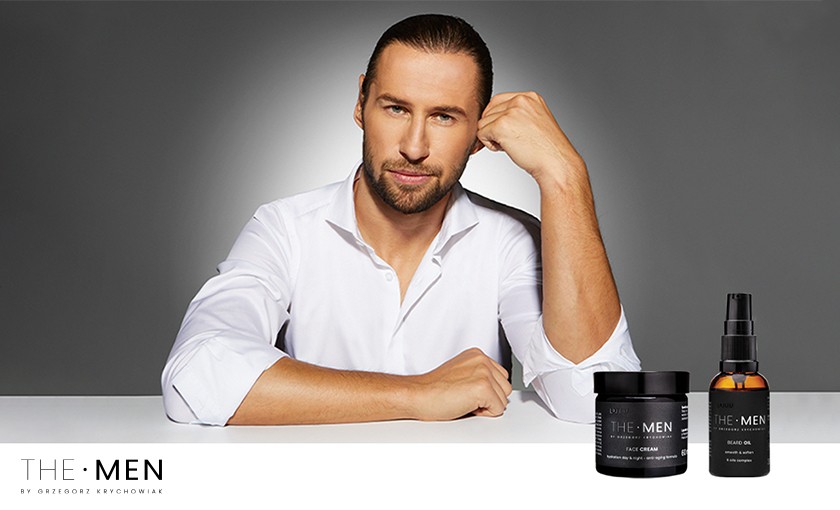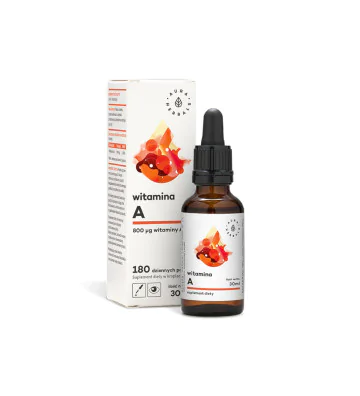FREE SHIPPING!
-
WOMEN
add remove
- All >>
-
Supplements
add remove
- All >>
- New
- Bestsellers
- Special offers
- Ashwagandha
- Colostrum
- Collagen
- Omega 3-6-9 acids
- Magnesium
- Vitamin C
- Vitamin D
- Kwas hialuronowy
- Amino Acids
- Anti-Aging
- Pregnancy and lactation
- Detox
- Energy
- Fit & Sport
- Medicinal mushrooms
- Bones and joints
- Fatty acids
- Brain, Memory, Concentration
- Functional beverages
- Eyes
- Weight loss and diet
- Resistance
- Nails
- Dream
- Leather
- Inflammation
- Stress
- Superfood
- Digestion
- Urinary system
- Liver
- Hair
- Vitamins and minerals
- Hormonal support
- Bestsellers
- Collagen
- Colostrum
- Gift cards
- Gift sets
-
MEN
add remove
-
Supplements
add remove
- All >>
- New
- Bestsellers
- Special offers
- Ashwagandha
- Colostrum
- Collagen
- Omega 3-6-9 acids
- Magnesium
- Vitamin C
- Vitamin D
- Amino Acids
- Anti-Aging
- Detox
- Energy
- Fit & Sport
- Medicinal mushrooms
- Bones and joints
- Fatty acids
- Brain, Memory, Concentration
- Functional beverages
- Eyes
- Resistance
- Nails
- Dream
- Cardiovascular
- Leather
- Inflammation
- Stress
- Superfood
- Digestion
- Urinary system
- Digestive system
- Liver
- Hair
- Vitamins and minerals
- Hormonal support
- Bestsellers
- Collagen
- Colostrum
- Probiotics
- Weight loss and diet
- Collagen
- Colostrum
- Gift cards
- Gift sets
-
Cosmetics
add remove
- All >>
- New
- Bestsellers
- Special offers
- Aromatherapy
- Body and bath
- Hands
- Oral cavity
- Tanning
- Intimate hygiene
- Feet
- Face
- Hair
- Bath cosmetics
- Hair care cosmetics
- Hair Styling
- Hand creams
- Natural
- Facial cosmetics
- Essential oils
- Beard care
- Intimate hygiene
- Deodorants and antiperspirants
- Cosmetics kits
- Against wrinkles
- Gift cards
- Gift sets
-
CHILDREN
add remove
-
Supplements
add remove
- All >>
- New
- Bestsellers
- Back to School
- Special offers
- Colostrum
- Omega 3-6-9 acids
- Magnesium
- Vitamin C
- Vitamin D
- Pregnancy and lactation
- Bones and joints
- Fatty acids
- Brain, Memory, Concentration
- Eyes
- Resistance
- Dream
- Digestion
- Digestive system
- Vitamins and minerals
- Bestsellers
- Colostrum
- Gift cards
- Gift sets
- Accessories add remove
- COLLAGEN
-
BRANDS
add remove
- MOST POPULAR add remove
- ARABIAN PERFUME
Search for
- All
- Product
- Brand
Free delivery

SHIPPING TODAY!
Order within:
04
h24
min52
sec
Shipping next business day
0 items
0.00 zł
Total
0.00 zł
Blog navigation

Which vitamins should you choose? Learn about the most important ones
Posted on:
2024-04-22
Table of contents
The human body is often compared to a well-functioning machine, in which every component, even the tiniest one, has an important task to perform. When one of them fails, the machine slowly begins to stop working, to deteriorate. And so it is also with our body, which needs many factors to work properly. For example, vitamins. The role of vitamins in the human body is extremely important and more extensive than it may seem. It is based not only on immune support. But first let's get to the issue of finding out what vitamins are and which ones are the most important?
All vitamins are important!
The division between the most important vitamins and the less important ones is simply wrong. Although you probably hear about some more often and others only occasionally, but all vitamins are needed by your body to the same degree. Each is necessary at different stages of metabolic processes occurring in the body. Some are also antioxidants, so they protect us from free radicals and reduce the risk of many diseases - including civilization diseases. They are exogenous, which means that the body does not synthesize them or does not do so sufficiently. Therefore, it is necessary to provide vitamins with food or in the form of supplements. Especially when symptoms indicate avitaminosis. The role of vitamins in the human body is not inconsiderable, and a proper diet and thoughtful supplementation enable the entire body to function in health and harmony. To enable them to do so, it is worth learning what vitamins are, as well as how many there are, what they affect and where they can be found.
.webp)
.webp)
What are the vitamins? Division into fat-soluble and water-soluble
How are vitamins divided? They can be divided into two categories: water-soluble and fat-soluble. What does this mean? Fat-soluble vitamins are absorbed along with fats from the digestive system. Therefore, they should be taken along with meals containing this essential nutrient. These are:
- Vitamin A
- Vitamin D
- Vitamin E
- Vitamin K
That is, the so-called ADEK vitamins. Remember that they accumulate in fat tissue and in the kidneys and liver. Too many vitamins in supplements can therefore cause an overdose. However, this would require regular consumption of very high doses.
Water-soluble vitamins are not stored, and excess is disposed of in the urine. This means that you need to supply them with food or in the form of supplements every day. This is best done before meals. The group of water-soluble vitamins includes:
- Vitamin B1
- Vitamin B2
- Vitamin B3 (vitamin PP or niacin)
- Vitamin B5 (pantothenic acid)
- Vitamin B6
- Vitamin B7 (also known as vitamin H or biotin)
- Vitamin B9 (folic acid)
- Vitamin B12
- Vitamin C
- These 13 vitamins are biocatalysts for the processes taking place in every cell of our body. Maintaining the harmony of the body without them would be impossible. What are the vitamins responsible for? Below you will find a short guide.
.webp)
The role of vitamins in the human body
You know what vitamins are and what groups we divide them into. However, the role of vitamins in the human body is a much more complicated issue. We are not going to describe their effects on the various elements of the body, as this would require a considerable delve into advanced chemistry. So we will focus on what is most important - the functions of vitamins!
Vitamin A - associated primarily with the normal process of vision. However, it is responsible for more than that. It supports the immune system, epithelial regeneration or proper lipid metabolism. It is also a huge support for the beautiful appearance of the skin. Retinol is precisely the active form of vitamin A!
- Vitamin D - or the so-called sunshine vitamin. It is necessary to supplement it regularly, especially in autumn and winter. It is responsible for regulating the diurnal rhythm, increasing bone density or improving muscle strength. It also has a stimulating effect on the immune system.
- Vitamin E - is not only a beauty vitamin. It is a powerful antioxidant, so it has anti-cancer and anti-inflammatory effects. It also regulates the endocrine system.
- Vitamin K - one of the "niche" vitamins that we often forget about. It works synergistically with vitamin D as a support in regulating calcium and phosphate metabolism. It also regulates blood clotting and has an antibacterial effect.
- Vitamin B1 - or thiamine. Has anti-inflammatory effects and supports the cardiovascular, immune and nervous systems.
- Vitamin B2 - riboflavin. Has an antioxidant effect, takes part in metabolic changes. It regenerates mucous membranes and even takes part in the process of blood formation.
- Vitamin B3 - niacin. Like vitamin B2, it participates in the process of blood formation. It is also responsible for regulating blood cholesterol levels, the work of carbohydrate metabolism and the biochemical metabolism of fats, proteins and carbohydrates. It provides support for the health of hair, skin and nails.
- Vitamin B5 - pantothenic acid. It is a support for immunity and the cardiovascular system. It participates in the synthesis of coenzyme A.
- Vitamin B6 - pyridoxine. Supports the nervous system through the synthesis of neurotransmitters. Improves immunity and helps with blood production.
- Vitamin B7 - biotin. Associated mainly with beautiful hair, skin and nails. No wonder - biotin is involved in the synthesis of keratin.
- Vitamin B9 - folic acid. Necessary when preparing for pregnancy and during the first trimester, as it affects the proper growth, development and reproduction of cells. It synthesizes DNA strands, supports nervous system function and improves fertility.
- Vitamin B12 - cobalamin. Responsible for the proper functioning of the nervous system - takes part in the synthesis of neurotransmitters. Like other B vitamins, it participates in the process of blood formation.
- Vitamin C - is not only immunity. Vitamin C supports collagen synthesis, has an anti-inflammatory effect, and regulates carbohydrate metabolism. It is essential in the process of regulating blood pressure.
If you are wondering what vitamins are necessary for life, which ones to take regularly, the answer is clear - all vitamins are necessary for the work of the body. Thanks to them, the quality of life is greater, and the body - like a well-oiled machine - functions properly.
Related products
Vitamin C 500 mg with rosehip 100 pcs.
Old price: 29.00 zł
Price: 26.10 zł
Discount: 10%
Save up: -2.90 zł
Enrich your diet with rosehip vitamin C
Suitable for vegans
Supports...
Vitamin D-3 1000 IU.
Old price: 27.00 zł
Price: 24.30 zł
Discount: 10%
Save up: -2.70 zł
New vitamin D-3 1000 IU gel capsules.
Helps maintain strong bones...
Vitamin A, drops 30ml
Old price: 17.90 zł
Price: 17.01 zł
Discount: 5%
Save up: -0.90 zł
Why choose Aura Herbals Vitamin A?
100% vegan vitamin,
Branded Quali®-A...
Related posts
 THEGLOOW.COM specialists
THEGLOOW.COM specialists
Posted in:
THEGLOOW.COM
2023-09-01
THEGLOOW.COM store is not just a place to shop. It's a space where experts in various fields co-create harmony of...
Read more
 A healthy lifestyle is a kind of balance. Agnieszka Woźniak-Starak
A healthy lifestyle is a kind of balance. Agnieszka Woźniak-Starak
2023-09-14
One of the biggest and most beautiful Polish celebrities, known from television, radio, and the Triangle - the...
Read more
 I always focus on quality - Grzegorz Krychowiak
I always focus on quality - Grzegorz Krychowiak
Posted in:
THEGLOOW.COM
2023-10-05
In the interview, he talks about healthy habits that help you succeed, As well as about the brand THE - Men by...
Read more



